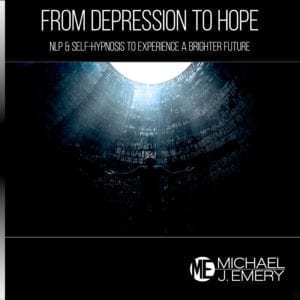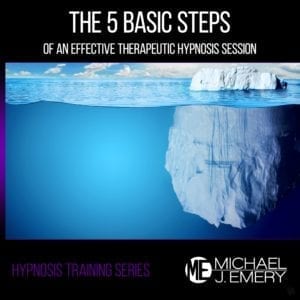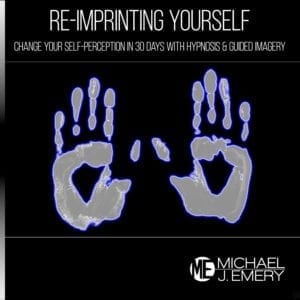Hypnotherapy is actually a relatively simple form of alternative therapy where self-hypnosis or deep relaxation is used in conjunction with professional hypnotic induction to produce a relaxed state of focus and increased suggestibility. During clinical hypnosis memories and thoughts can be accessed and used to address a variety of problems and concerns. What is interesting about hypnotherapy, is that it uses meta-analyses which is a sort of mental sleuthing or expansive thinking such as what is found in the Milton Model.
Showing all 93 results





























































































If you've been looking for an effective way to combat stress, then you might want to consider hypnotherapy. Hypnotherapy can be used for a number of things, including chronic pain, anxiety, sleeping problems, and more. But what exactly does hypnotherapy entail? And is it an appropriate option for your needs?
Hypnotherapy is actually a relatively simple form of alternative therapy where self-hypnosis or deep relaxation is used in conjunction with professional hypnotherapy to produce a relaxed state of focus and increased suggestibility in which positive, constructive thoughts can be accessed and used to address a variety of problems and concerns. What's interesting about hypnotherapy, however, is that it uses meta-analyses--a sort of mental sleuthing. During a hypnotherapy session, the practitioner will use IBS assessment instruments to ask you questions regarding your stressors. The idea is that you'll be able to let go of unhealthy feelings and behaviors and replace them with more positive, realistic ways of responding to stressors in your life. When you reach a state of hypnosis, the practitioner will then be able to identify those issues and teach you how to tackle them appropriately.
One of the biggest problems with traditional psychotherapy approaches is that they rely on certain patterns of reinforcement to produce change. Cognitive behavioral therapy (CBT) and stress management are classic examples of this. By using a series of questionnaires, CBT may be able to reduce or eliminate the problem of stress, but as a psychological technique, it relies on the use of "matching" or correlated responses. This means that, if someone answers yes to one question, then they are also likely to answer yes to others--and so on.
However, hypnotherapy differs from CBT in that it does not rely on the use of questionnaires. Rather, hypnotherapy relies on the idea that the mind can think for itself. Therefore, a hypnotherapist is able to encourage patients to re-experience their traumatic events in a relaxed and creative way. During hypnotherapy, a trained hypnotist will often suggest that patients picture themselves as fully aware and responsible human beings who have "returned to their senses." This helps them to realize that although the incident may still be fresh in their minds, they no longer hold false memories about it.
Hypnotherapy and other alternative medicines have been growing in popularity because they address both physiological and psychological issues in a safe, effective, and convenient way. In addition, hypnotherapy and other alternative medicines are exempt from the stringent standards of traditional medicine. This is because many of the medical practices and drugs used in conventional medicine are dangerous and ineffective. Therefore, people are willing to experiment with hypnotherapy, herbal remedies, and other alternative medicine techniques. Many people have found that hypnotherapy and other alternative therapies provide significant pain relief, improve moods and self-esteem, and decrease the occurrence and severity of symptoms associated with depression and anxiety. These benefits also make hypnotherapy and other alternative medicine an attractive alternative to traditional medicine.
Hypnotherapy, like other alternative therapies, relies on the ability of the client's subconscious mind to respond to suggestions made by the hypnotherapist. In fact, many therapists argue that there is far less scientific proof that hypnotherapy has any effectiveness than that clinical hypnotherapy. Because of this lack of evidence, the American Board of Hypnotherapy recommends that before beginning treatment, clients should avoid any type of medication or alcohol and should request a thorough medical history.
Hypnotherapy can be used to treat a number of different disorders and conditions. For example, it has been widely considered that hypnotherapy can help to treat serious cases of panic disorder, phobias, agoraphobia, OCD (Obsessive Compulsive Disorder), and other types of mental health disorders. Many therapists also recommend hypnotherapy as a method for treating depression. In fact, research conducted by leading researchers in the field indicate that depression can be treated using hypnosis. In addition, many clinical psychologists advocate hypnotherapy as a means of treating post-traumatic stress disorder and common anxieties such as social anxiety. Many researchers also believe that hypnotherapy can be an effective method of treating addictions to illegal drugs, alcohol, smoking, and eating disorders.
As you can see, there are many positive results when using hypnotherapy and other alternative medical treatments. If you are considering using hypnotherapy or another alternative treatment to treat a condition or treat yourself, it is important that you do not attempt to treat yourself without the assistance of qualified medical healthcare. Make sure that you get a full evaluation from a licensed practitioner if you are having regular treatment. The evaluation will help to ensure that you are receiving the best care possible. You can find more information about your own condition or about the health care options available to you, including hypnotherapy, from your doctor or health care provider.
Explore audio program categories utilizing the best techniques in neuro-linguistic programming, Ericksonian hypnosis, brainwave frequencies, and guided visualization.










